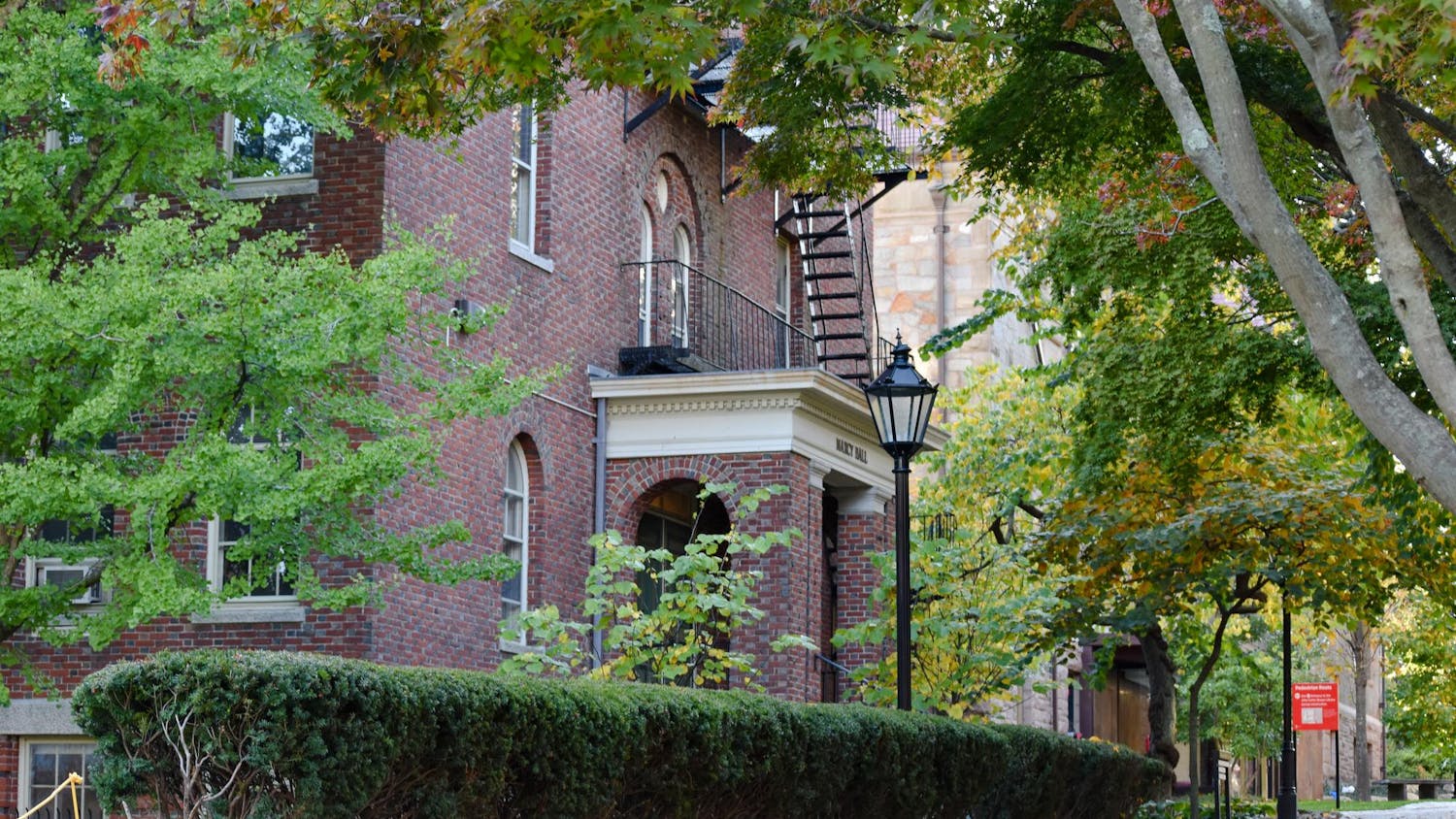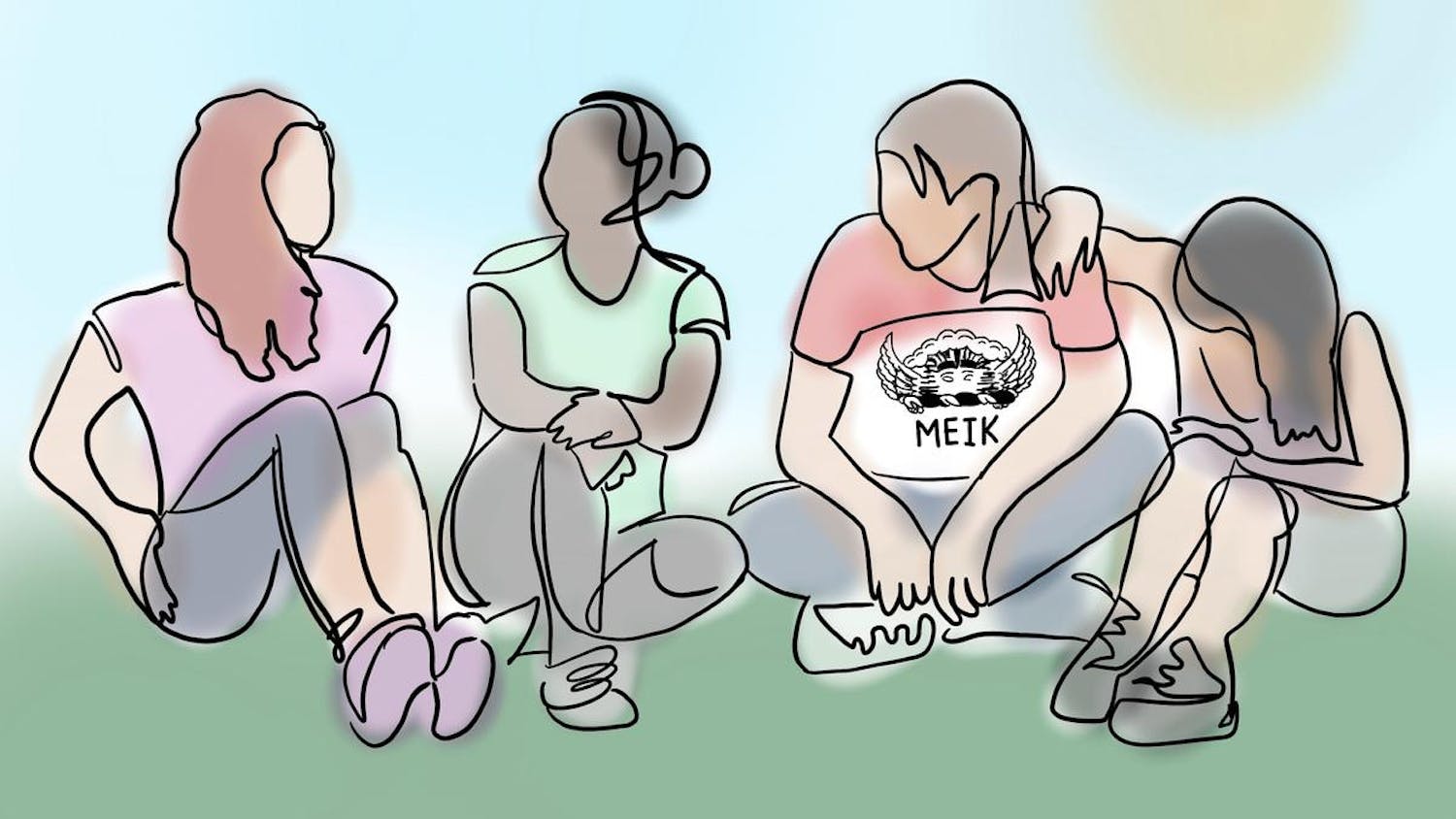The presidential search committees will host eight forums and four department chair meetings in the next two weeks as part of the search for the University‘s 19th president, Chung-I Tan, chair of the Campus Advisory Committee and professor of physics, said at yesterday's faculty meeting.
At the first faculty meeting since the Campus Advisory Committee and Corporation Search Committee were named, administrators and faculty members also discussed University revenue streams and decisions about the Reserve Officers' Training Corps program and athletics.
The first chance for faculty input on the presidential search will be at a Nov. 8 faculty forum. Chancellor Thomas Tisch '76, who is heading the Corporation Search Committee, will attend along with other members of the Corporation Search Committee and Campus Advisory Committee.
Tan said the two committees will work collaboratively and follow the model laid down by those involved in the last presidential search.
The committees are in the first phase of the search process. Through December, they will ask questions, establish the University's current goals and decide what they want in the next president, Tan said.
Tisch aims to "learn as much about Brown as possible," Tan said. Tisch will attend all forums and meetings regarding the search.
Tan solicited nominations for the next president at the meeting and called the Campus Advisory Committee a "very diverse group." The committee includes five campus faculty members, one medical school faculty member, three undergraduates, two staff members, one graduate student and one medical student.
Provost Mark Schlissel P'15 presented on the composition of University revenue sources over the past decade. While revenue has grown 5.5 percent, the distribution of revenue sources has been very consistent, he said.
Tuition makes up around 30 percent of the University's revenue, more than at any of the University's peers, Schlissel said. Institutions like Princeton, Harvard and Yale draw the most money from their endowments, while research universities like Duke draw the most revenue from research grants.
"The biggest lever in everything we do is tuition," Schlissel said.
The Corporation is concerned about revenue growth for the University, President Ruth Simmons said, adding that decisions to pursue new projects and investments will "have to be in response to the economy."
Simmons solicited opinions as to whether the University should continue increasing tuition, which is projected to go up by 3.5 percent this year. Simmons added that members of the Corporation have enormous pessimism about economic growth over the next decade, an attitude she said will influence tuition growth.
Schlissel indicated concern that growth in tuition could particularly harm middle-class students, whose financial aid packages often involve student loans as well as grants. Consequently, Schlissel said the students matriculating to the University could become less representative of the general population.
Simmons also spoke about the reports she made to the Corporation regarding ROTC and athletics. Some Corporation members expressed concerns that her recommendation not to reinstate ROTC indicated a lack of support for the military, she said. The Corporation's request to instate an on-campus ROTC office was in part to show that the University is not opposed to the military.
It is "unusual for a governing board to step in in such a way" by mandating an office's creation, Simmons said.
Margaret Klawunn, vice president for campus life and student services, said there will be a proposal to outline the office's purpose by the end of the semester.
Simmons said the University endorsed her recommendation regarding athletics, though there is still a good deal of concern about reduction in admission slots reserved for athletes. She added that she imagines the issue of athletics is one that will come up for discussion again in the coming years.
"We've got to struggle with this for some time," she said.
Schlissel also announced the plan to develop a digital scholarship lab in the Rockefeller Library. The lab will include touch screens and digital monitors for student and faculty use.
The University will also establish a committee to discuss instituting an open-access policy for published research. University Librarian Harriette Hemmasi and Vice President for Research Clyde Briant will head the committee, and Schlissel said he plans to solicit recommendations from the Faculty Executive Committee for other faculty members to sit on the committee.
Peter Shank, chair of the FEC and professor of medical science, announced two upcoming faculty forums — one Nov. 15 about conflicts of interest and another in December about revisions to the academic calendar.
Dean of the Faculty Kevin McLaughlin P'12 discussed the tenure reports he presented at the Corporation meeting. The University will aim to have 70 to 75 percent of its faculty tenured, a lower percentage than at present, he said, but that goal will be realized over several years and will not be used to determine individual tenure cases.
McLaughlin will present on tenure again at the February meeting of the Corporation.
Memorial minutes were read for Anatole Shapiro, professor emeritus of physics, and Morris David Morris, professor emeritus of comparative development and sociology.




